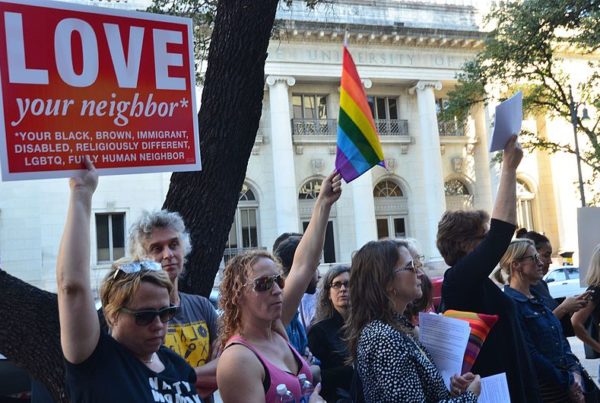Today, the US Supreme Court heard oral arguments in a case that could be among the most consequential OF its current term. Brought by the parents of a Mexican teenager shot by a border parol agent, it tests whether the agent can be sued in American court for killing the boy during an incident that occurred, literally, on the line between Texas and Mexico. Though the question posed to the court is narrow, the case tests the extent to which two amendments to the US Constitution apply when non-US citizens encounter the border patrol in their own country.
NPR legal affairs correspondent Nina Totenberg summarized the case on Morning Edition. In Jun 2010, 15-year-old Sergio Hernández and some friends were playing “chicken” on the Mexican side of the border between El Paso and Juarez daring each other to run to and touch the fence that divides the two countries. When border patrol agent Jesus Mesa arrived on the scene and grabbed on of the teenagers on the US side, the remaining youths ran away. When Hernández peeked out from behind a post, the agent shot him. Though the precise facts of the case; whether the agent felt provoked, or surrounded, are disputed, the Supreme Court is not being asked to judge what happened, or whether the agent acted appropriately when he shot from the Texas side of the border to the Mexican side, killing Hernández.
Law professor Steven Schwinn says the question before the Supreme Court is whether Hernández’ parents can sue, and whether they can rely on claims of Constitutional protection for their son.
“There is a technical question about whether Constitutional rights extend to a Mexican citizen on the Mexican side of the border when they’re shot by an American officer on the American side of the border.” he says.
Specifically, the 4th amendment to the US Constitution prohibits illegal seizure by law enforcement, and Schwinn says this is the basis on which many cases brought against officers who kill or wound citizens. But Hernández was not a US citizen, and he wasn’t in the United States when he died.
“It raises the question about whether the 4th amendment extends beyond the territorial limits of the United States and whether the officer reasonably ought to have known that the 5th amendment would extend beyond the territorial borders of the United States to a non-US citizen.” says Schwinn.
Though the cross-border facts of the current case are unusual, the court has addressed how and whether someone can sue federal officials for a violation of 4th amendment rights. Schwinn says the court was asked in Bivens v. Six Unknown Named Agents of Federal Bureau of Narcotics, a case from 1971, to determine whether a citizen could sue a federal official claiming protection under the Constitution’s 4th amendment.
Schwinn says “As it turns out, there’s no statutory right to sue a federal official for a Constitutional violation, and so the Supreme Court has carved out a very limited area where we can sue federal officials for violating our Constitutional rights. But I’ve got to say that the Supreme Court has been very stingy about that right.”
Written by Shelly Brisbin














